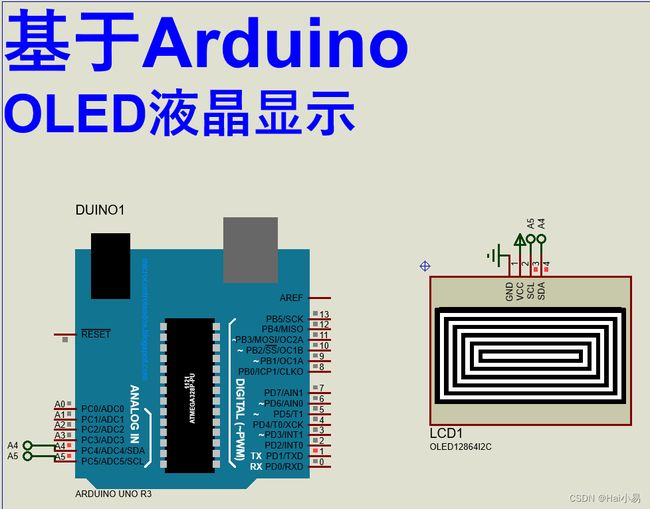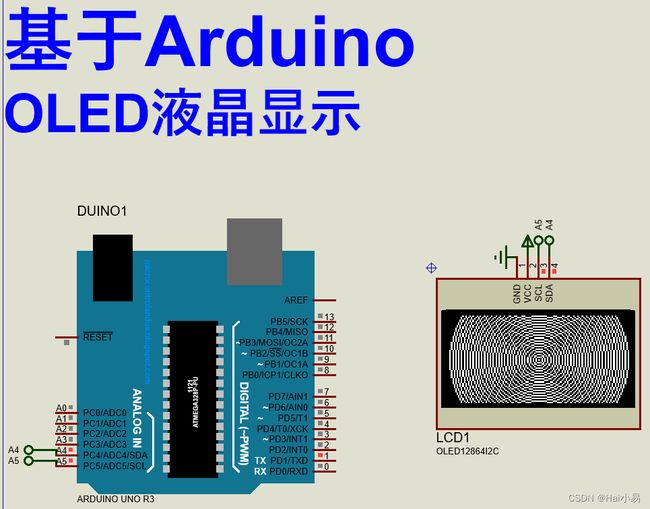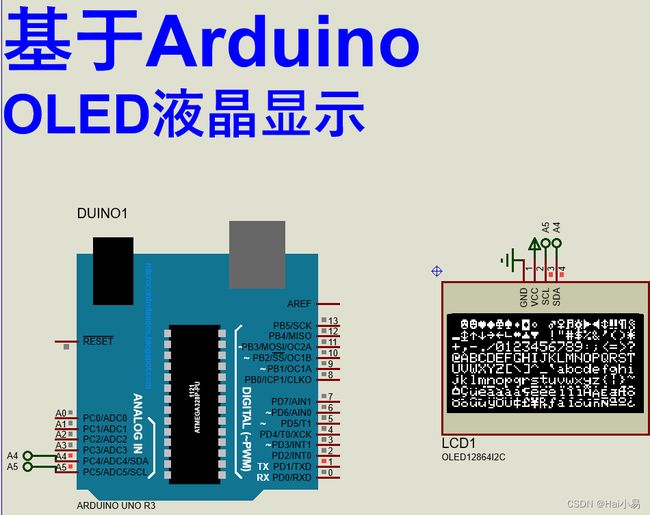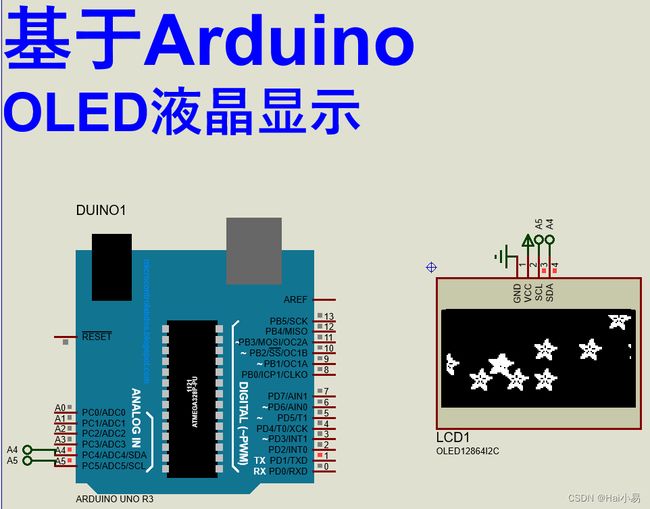【Proteus仿真】【Arduino单片机】OLED液晶显示
文章目录
- 一、功能简介
- 二、软件设计
- 三、实验现象
- 联系作者
一、功能简介
本项目使用Proteus8仿真Arduino单片机控制器,使用IIC OLED液晶等。
主要功能:
系统运行后,OLED液晶显示各种图形、字符、图像。
二、软件设计
/*
作者:嗨小易(QQ:3443792007)
*/
#include 三、实验现象
B站演示视频:https://space.bilibili.com/444388619
联系作者
视频地址:https://space.bilibili.com/444388619/video
专注于51单片机、STM32、国产32、DSP、Proteus、arduino、ESP32、物联网软件开发,PCB设计,视频分享,技术交流。




